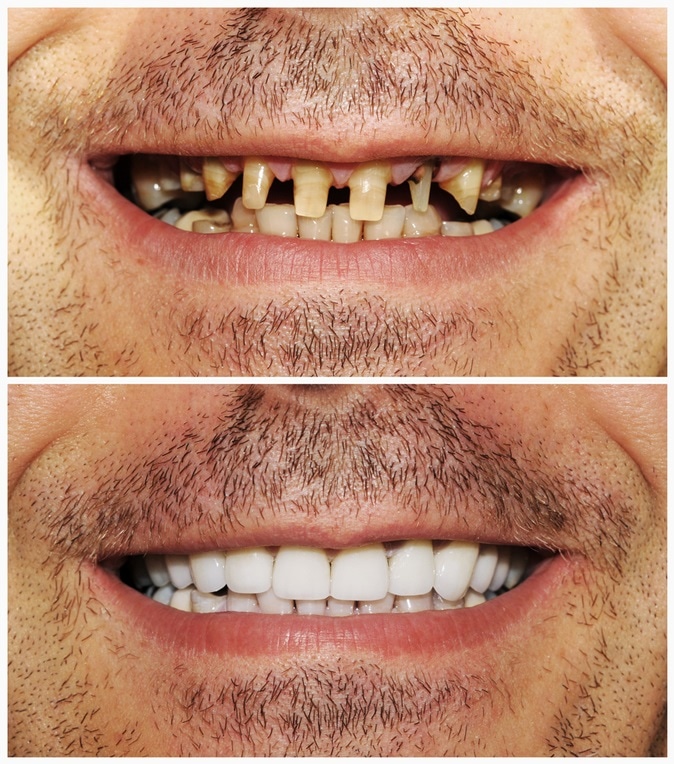According to a latest report published by the Nuffield Trust and the Health Foundation, the percentages of people with good dental health varies vastly between northern and southern England. There is a big gap between good dental health among the rich and the poor the report states and warns that if these divides are not bridged, the advances in the dental health among the general public would be less significant. The report is titled, “Root causes: quality and inequality in dental health”.

Image Credit: VojtechVlk / Shutterstock
The report was undertaken as part of the Nuffield Trust and the Health Foundation’s QualityWatch programme looked at the public databases on dental health in terms of outcomes and activities. Results revealed that residents of south and east of England had better dental health compared to those who live in the north of England. The rich also have a better dental health compared to the poor. The report shows that that the poor more likely end up needing hospital treatment for their dental problems. Parents of the kids who relied on free school meals were also less likely to be accessing a dentist the report shows.
The report hearteningly also finds that overall dental health has been improving steadily over the past few decades. For example the percentage of adults who have no natural teeth and all false teeth is a lowest compared to previous decades. The percentage of children who present with tooth decay has also fallen over time. More individuals are satisfied with modern dentistry than before.
Despite the good numbers there are pockets and areas where the statistics do not look so good in terms of dental health. Kids residing in the Blackburn with Darwen local authority area had a four times higher chance of getting missing, filled or decaying teeth compared to kids who lived in South Gloucestershire in 2015. Where 86 percent kids in South Gloucestershire did not have tooth decay, 44 percent kids in Blackburn had one or more decaying teeth. Children in Yorkshire below the age of 10 years were at a five times greater risk of getting hospitalized for tooth extraction compared to those living in the East of England in 2015/16. The numbers of hospitalizations for tooth extraction were 160 per 100,000 in East of England compared to 845 per 100,000 in Yorkshire. The number of kids under five having healthy teeth in the poorer areas was 70 percent compared to the not-so-deprived areas where the numbers are 83 percent in 2014 and 2015, the report finds. Further 18 percent children who were on free school meals found it difficult to find a NHS dentist in 2013 compared to 11 percent of those who were not on free meals.
Among adults, the risk of hospitalization for dental procedures was double for poorer adults (14 percent) in 2015 compared to those who were better off (7 percent).
The dental charges have risen over the past seven years till this year says the report by around 1 percent a year with around 6 percent rise in the last couple of years. On the other hand the NHS is spending 15 percent less on dentistry compared to 2010-11 says the report. This is deterring several adults from seeking dental health early at preventive stages. The authors write that the dentists and their teams are providing the care necessary but the NHS needs to take more initiatives to prevent poor dental health overall.
According to Professor John Appleby, an author of the report and Nuffield Trust Director of Research, “As a nation our dental health is improving, but it is shocking that your income or where you live can still determine your dental health, how likely you are to be hospitalised with dental problems and how easily you can access the dental treatment you need… We know that poor oral health is linked to other health problems, like obesity, alcohol consumption and smoking. So it makes sense to involve dentists more in plans across the NHS to address these problems. But unless more efforts are made to tackle the inequalities we identify and embed prevention of ill health across dentistry, the progress made over the past few decades in improving the nation’s oral health could stall.”
References: